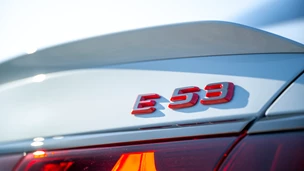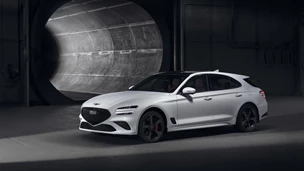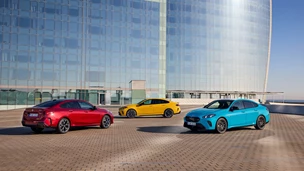Introduction
Volkswagen is arguably one of the car firms taking electrification the most seriously – choosing to launch a whole new range of bespoke EVs that currently sit alongside its more conventional petrol and diesel cars.
Using a new platform specifically designed for electric models – known as MEB – it kickstarted its ‘ID’ range of EVs with the ID.3 hatchback last year, which has already proven popular with buyers.
And as it quickly ramps up its electric line-up, next up is the ID.4, a new battery-powered SUV that has been cleverly designed with maximum interior space in mind, and also optimising weight balance thanks to its low battery positioning. But is the ID.4 good enough to compete with the growing range of electric SUVs on the market? Let’s find out…

Performance
Volkswagen offers a choice of three powertrain options on the ID.4, called Pure, Pure Performance and Pro Performance.
The Pure combines a 148bhp electric motor with a 52kWh battery and is capable of a 213-mile range, meanwhile the Pure Performance uses the same battery but a slightly more powerful 168bhp motor, yet still has a 213-mile range.
The Pro Performance is the one in our test car, and combines a 77kWh battery with a 201bhp electric motor. With power delivered to the rear wheels, 0-60mph takes 8.5 seconds, and flat out it would reach 99mph. The main draw to this model, though, is its larger battery, which claims to allow for 310 miles of electric range. Rapid charging also means its battery can be replenished to 80 per cent in around 40 minutes.
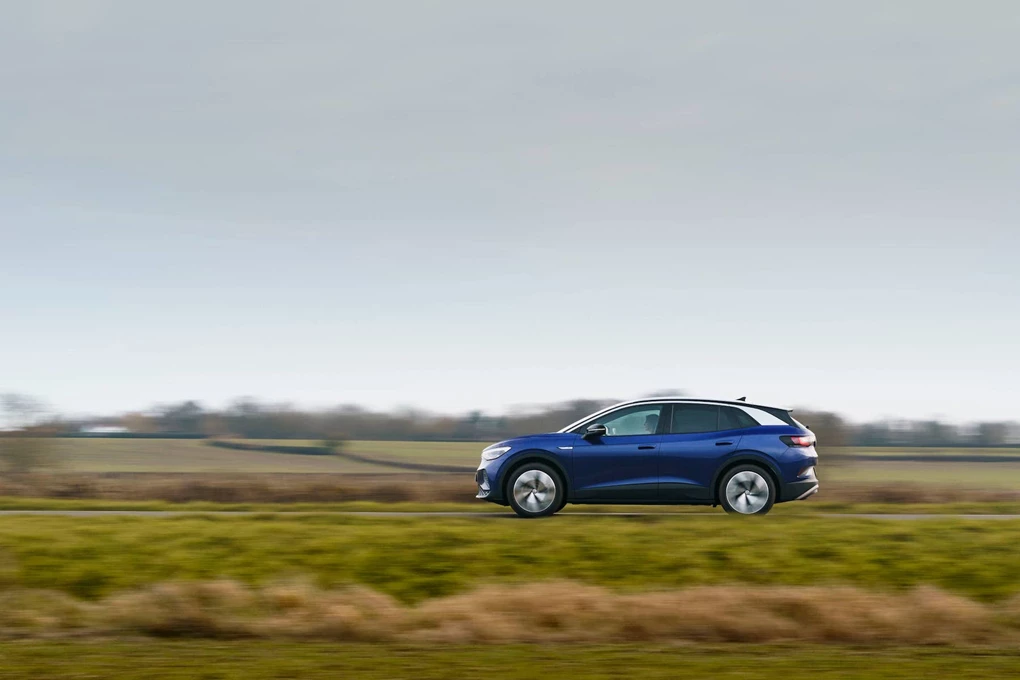
Ride and handling
The ID.4 is a model that’s all about smoothness and refinement, and that’s really where it excels. Its powertrain is as smooth as they come, with no joltiness, but a seamless power delivery when required. It’s never especially quick, but that isn’t really the aim here.
At motorway speeds, it remains quiet with minimal road and wind noise, while even with our test car’s larger alloy wheels, the ride remained comfortable and compliant. Thanks to the low battery positioning, it also has a low centre of gravity and is quite capable in the bends, though is never what you’d describe as fun – but this was never Volkswagen’s intention. A hot ID.4 GTX model aims to provide more in the way of thrills when it arrives later this year.
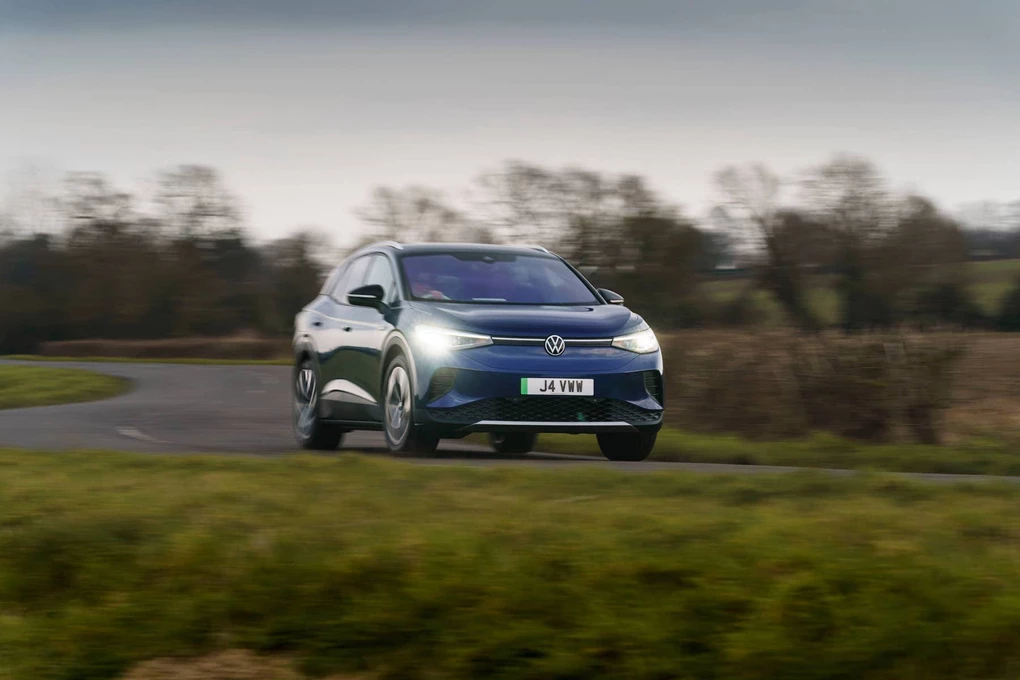
Interior and equipment
Inside, the ID.4 is quite a mixed bag. Though it feels especially light and airy, the minimalist design ethos doesn’t quite work here as it feels a bit sparse, while some of the quality isn’t quite up to Volkswagen’s usual impressive standards in places.
On a more positive note, the ID.4 certainly scores on the spaciousness front. In terms of its size, it’s longer than the family-sized Tiguan SUV, while having the powertrain low in the floor means there’s no impact on passenger space. It’s arguably even roomier than a similarly-sized petrol or diesel SUV, with loads of rear seat space and a large 543-litre boot (or 1,655 litres with the rear seats folded). It certainly feels like an ideal option for families looking to make the switch to an EV.
Trim levels available on the ID.4 include the City, Style, Life, Family and Max, with the latter three options being limited to the pricier Pro Performance powertrain.
Standard equipment is generous, and includes LED headlights, a 10-inch touchscreen, wireless smartphone charging and 30-colour ambient lighting, while the Style brings 18-inch alloy wheels, Matrix LED headlights, a reversing camera and keyless entry.
Next up is the Life, which broadly mirrors the City trim but you pay more for its better powertrain, while Family adds 19-inch alloy wheels, heated front seats and a panoramic sunroof. At the top of the range, the Max lives up to its name, bringing electric front seats, an augmented reality head-up display, an electric boot and additional safety assists.

Cost
The recent addition of a more affordable trim now means that the entry-level City model with the Pure powertrain is eligible for the government’s plug-in grant, which brings the cost down to an impressive £32,150, which represents great value for money.
Unfortunately, all other models are too expensive to qualify for the grant, with prices quickly racking up. If you want the version with the 310-mile range, it will set you back £41,570, while prices go up to a steep £49,990 for the flagship Max.
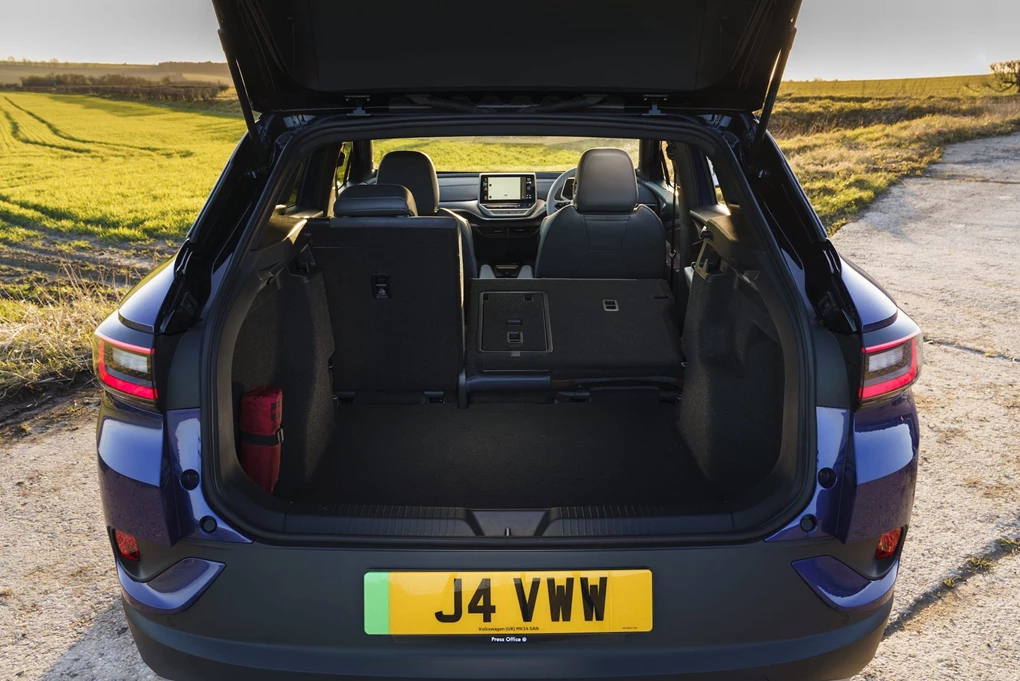
Verdict
The ID.4 is another very credible model to come from Volkswagen’s new EV team, with its hugely roomy interior, comfort and refinement and SUV styling likely to have huge appeal to many buyers.
While the cabin isn’t the best out there, the ID.4 is still an accomplished electric car, and one that feels perfectly designed to integrate into the lives of those that have never owned an EV before.
Enquire on a new Volkswagen ID.4

